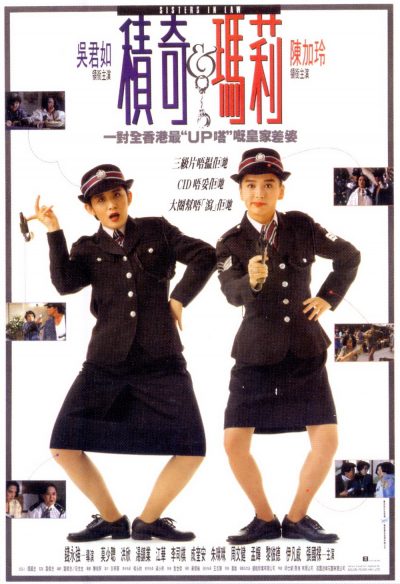Literary rating: ★★★
Kick-butt quotient: ☆☆
 Revenge, as the saying goes, is a dish best served cold. Or, from another saying, hell hath no fury like a woman scorned. Illustrating both are the story told here. Jasmine Albertson had already gone through the lows and highs of life, before meeting and getting married to Stu. But when Stu’s business partner John Mickelson makes him take the fall for John’s embezzlement, leading to Stu’s suicide, Jasmine vanishes off the grid in Los Angeles. She moves to New York and sets her sights on a long-term plan to make John pay. And not financially: as she tells her gay best friend Tory, “I want him to know he fucked with the wrong people when he fucked over Stu and then me. I want him to suffer. And then I want to send him to hell.”
Revenge, as the saying goes, is a dish best served cold. Or, from another saying, hell hath no fury like a woman scorned. Illustrating both are the story told here. Jasmine Albertson had already gone through the lows and highs of life, before meeting and getting married to Stu. But when Stu’s business partner John Mickelson makes him take the fall for John’s embezzlement, leading to Stu’s suicide, Jasmine vanishes off the grid in Los Angeles. She moves to New York and sets her sights on a long-term plan to make John pay. And not financially: as she tells her gay best friend Tory, “I want him to know he fucked with the wrong people when he fucked over Stu and then me. I want him to suffer. And then I want to send him to hell.”
To this end, she creates an alter ego who will be able to ensnare the notoriously lecherous Mickelson. That’s Grace Huntington, a woman who cares not one whit for John’s (ill-gotten) gains or power, is all the more desirable as a result, and makes him willing to give her complete control. Three years after departing, “Grace” returns to LA, slowly reeling her prey in, and bringing him inexorably towards a bloody rendezvous in a 20th-floor hotel room. The weapon of choice? The high-heels shown on the cover, dating from her time as an exotic dancer; for one of them conceals a switchblade.
This isn’t suspenseful, except in the sense that you’re not certain what will happen in that hotel room. Right from the start, before we flash back to the events which led to Stu’s death, we know Jazz is planning to kill John. As a result, you’re left wondering less what will happen, than how it will unfold, and is almost Shakespearean in the inevitability of it all. Though on the other hand, it’s an unrepentantly shallow potboiler, with more than its share of foul language and a sprinkling of graphic sex. Not that there’s anything wrong with that, of course. However, the fact you know the destination doesn’t hurt too much, since it gives Rowland time to bring you along with Jazz on her journey towards murder.
Make no mistake, this is more or less revenge porn, with the heroine going up against a truly repulsive man in the shape of Mickelson, who has close to no redeeming features. It’s certainly simplistic, with no much in the way of setbacks for Jazz, or problems to overcome, and Tory serves no real purpose, except as a sounding-board for her emotions. As a one-off, I still must admit to being (somewhat guiltily) entertained, even if this isn’t exactly literary haute cuisine. I’m not certain how this can be spun into a multi-book series, though I suspect it’s as much about the shoes as anything – and that’s actually quite an interesting idea. High-heels of death, anyone?
Author: Caddy Rowland
Publisher: Amazon Digital Services, available through Amazon, both as a paperback and an e-book
Book 1 of 4 in the Avengement series.





 It’s the first day as a pizza delivery gal for Samantha Craft (Griffith), and things aren’t going well, with no tips being received. When given the chance of a delivery to a rich neighbourhood, she pounces – only to find herself getting stiffed again. This time, she sneaks in to demand her gratuity, which drops her in the middle of a satanic ceremony overseen by coven head, Danica Ross (Romijn). They’re attempting to summon Baphonet, but have hit a snag. Their intended vessel, Danica’s daughter Judy (Modine), no longer qualifies as a virgin, so Sam’s presence is highly convenient. For Sam? Not so much. Though perhaps to her benefit, there’s a bit of a power struggle in the coven, with Gypsy (Myrin) fed up of playing the second satanic banana to Danica.
It’s the first day as a pizza delivery gal for Samantha Craft (Griffith), and things aren’t going well, with no tips being received. When given the chance of a delivery to a rich neighbourhood, she pounces – only to find herself getting stiffed again. This time, she sneaks in to demand her gratuity, which drops her in the middle of a satanic ceremony overseen by coven head, Danica Ross (Romijn). They’re attempting to summon Baphonet, but have hit a snag. Their intended vessel, Danica’s daughter Judy (Modine), no longer qualifies as a virgin, so Sam’s presence is highly convenient. For Sam? Not so much. Though perhaps to her benefit, there’s a bit of a power struggle in the coven, with Gypsy (Myrin) fed up of playing the second satanic banana to Danica. Within about two minutes of starting this, I realized I had made a terrible mistake, and was watching something barely reaching the amateur level of film production. Still, I soldiered on – albeit for some loose definition of “soldiered” – until the bitter end, mostly so I could issue an informed warning about this to any prospective viewers. Maxine (Mitchell) is rather upset when she discovers her boyfriend, music video producer Lance (Watts) has been cheating on her with Lana (Bryant). Mind you, she’s clearly a bit unhinged already: for example, telling him she’s pregnant when she isn’t. So it’s not much of a surprise when her reaction to his two-timing is to kidnap Lance, tie him up in her basement and submit him to various indignities, along with seeking revenge on Lana. Which, apparently, includes sleeping with her father (Walker).
Within about two minutes of starting this, I realized I had made a terrible mistake, and was watching something barely reaching the amateur level of film production. Still, I soldiered on – albeit for some loose definition of “soldiered” – until the bitter end, mostly so I could issue an informed warning about this to any prospective viewers. Maxine (Mitchell) is rather upset when she discovers her boyfriend, music video producer Lance (Watts) has been cheating on her with Lana (Bryant). Mind you, she’s clearly a bit unhinged already: for example, telling him she’s pregnant when she isn’t. So it’s not much of a surprise when her reaction to his two-timing is to kidnap Lance, tie him up in her basement and submit him to various indignities, along with seeking revenge on Lana. Which, apparently, includes sleeping with her father (Walker). This takes place in the Indian city of Delhi, and despite the title and the poster, is really about two policewomen, almost equally. Title billing goes to Soni (Ohlyan), a young officer who is coming to terms with life after divorce from her husband, Naveen (Shukla). She is also the possessor of a fierce temper, which repeatedly gets her into trouble because she’s unable to keep her cool with suspects. Forced to play clean-up is her boss, superintendent Kalpana Ummat (Batra), who seems to see something of her younger self in Soni, as well as appreciating the junior cop’s potential. But there’s only so far she can protect Soni from the consequences of her outbursts.
This takes place in the Indian city of Delhi, and despite the title and the poster, is really about two policewomen, almost equally. Title billing goes to Soni (Ohlyan), a young officer who is coming to terms with life after divorce from her husband, Naveen (Shukla). She is also the possessor of a fierce temper, which repeatedly gets her into trouble because she’s unable to keep her cool with suspects. Forced to play clean-up is her boss, superintendent Kalpana Ummat (Batra), who seems to see something of her younger self in Soni, as well as appreciating the junior cop’s potential. But there’s only so far she can protect Soni from the consequences of her outbursts. The first volume in the Imp series,
The first volume in the Imp series, 
 This is exactly the kind of “mismatched cop” film in which you’d expect to see Melissa McCarthy, if it was ever remade by Hollywood. Though since two decades later, McCarthy would star in
This is exactly the kind of “mismatched cop” film in which you’d expect to see Melissa McCarthy, if it was ever remade by Hollywood. Though since two decades later, McCarthy would star in  I should probably start by providing some background the film omits – likely because the intended Indian audience were well aware of it. In 2012, a notorious gang-rape took place in Delhi, the victim subsequently dying. Of the six attackers, four were sentenced to death and one committed suicide in prison – but the sixth, being a juvenile, could only receive a maximum sentence of three years. This loophole appalled many, including two journalists depicted in this film, Jyothi (Nivedhitha) and Divya (Karagada), who begin a campaign to revise the law.
I should probably start by providing some background the film omits – likely because the intended Indian audience were well aware of it. In 2012, a notorious gang-rape took place in Delhi, the victim subsequently dying. Of the six attackers, four were sentenced to death and one committed suicide in prison – but the sixth, being a juvenile, could only receive a maximum sentence of three years. This loophole appalled many, including two journalists depicted in this film, Jyothi (Nivedhitha) and Divya (Karagada), who begin a campaign to revise the law.
 This one may be the origin of the meme, “After the apocalypse, food, water and gasoline are in short supply – but hair-spray will still be plentiful.” For there’s no denying the absolute silliness of this slab of post-apocalyptic nonsense. But it’s still imaginative and energetic enough that my interest was largely sustained. We’re apparently long enough after World War III for it all to have become the stuff of almost-forgotten legend. In the aftermath, the world is now occupied by roaming bands, mostly of men. However, certain women are gifted with special powers, and they have banded together into the titular group, under their reverend mother, and are feared by most as witches.
This one may be the origin of the meme, “After the apocalypse, food, water and gasoline are in short supply – but hair-spray will still be plentiful.” For there’s no denying the absolute silliness of this slab of post-apocalyptic nonsense. But it’s still imaginative and energetic enough that my interest was largely sustained. We’re apparently long enough after World War III for it all to have become the stuff of almost-forgotten legend. In the aftermath, the world is now occupied by roaming bands, mostly of men. However, certain women are gifted with special powers, and they have banded together into the titular group, under their reverend mother, and are feared by most as witches.